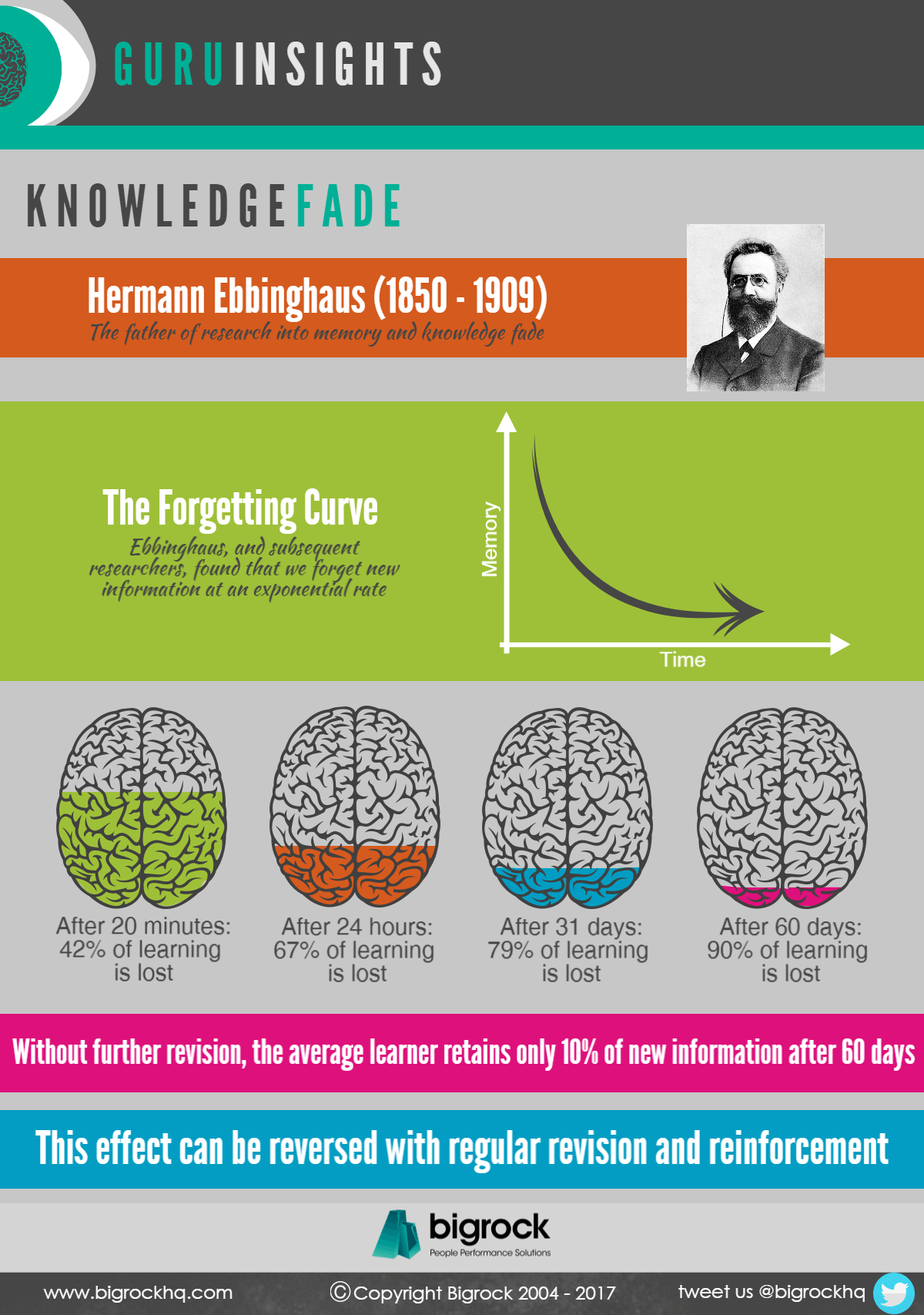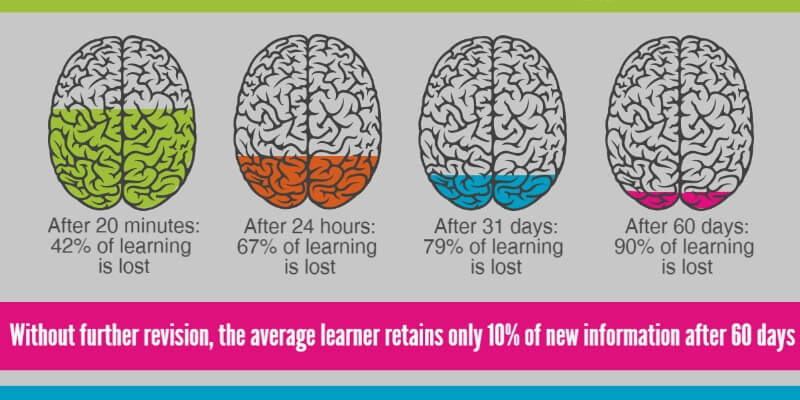Have your recently attended a Bigrock event? As you begin to apply new learning, consider the research of Hermann Ebbinghaus, a 19th century thought leader whose research into memory and our ability to retain learning still has impact today.
In 1885 Hermann Ebbinghaus undertook pioneer research into memory, learning and forgetting. Using himself as a subject, Ebbinghaus conducted a series of experiments to test how his memory performed when memorising and recalling simple lists of unrelated nonsense syllables.
These experiments, conducted on one subject only, would not be considered scientifically rigorous by modern standards and only tested one element of memory as we now understand it. Ebbinghaus undertook his study at a time when very little was known about the brain or memory and he is now considered a pioneer of neuroscience. His work has inspired a number of scientists to delve deeper into this area and conduct broader, more rigorous, experiments.
The basic truth of Ebbinghaus’ theories, now commonly called knowledge fade, has subsequently been reinforced by modern science and observed in action by learning professionals.

Ebbinghaus found that our ability to recall new information deteriorates rapidly over time if learning is not reinforced. Even with the simple task of remembering a list of nonsense words memory failed at an alarming rate.
- After 20 minutes 42% of the memorised list was lost
- After 24 hours 67% of the list was lost
- After 31 days 79% had been forgotten
Ebbinghaus, and subsequent researchers, found that we forget new information at an exponential rate. Most people lose the majority of information within 24 hours of their initial learning experience. What we retain past that point remains with us far longer.
So how can you reverse the effects of knowledge fade?
There are several ways to reverse the effect of knowledge fade and ensure you retain more information permanently.
Mnemonic techniques involving acronyms, word association, images and diagrams can help to make important information more memorable. As does emotional connections or relating the information to something you already know. For this reason, at Bigrock, we fill our programmes with mnemonic aides, graphics and pictures. Our consultants are chosen for their engaging training style and encouraged to relate training to humour and other emotions. Furthermore, our programmes are also highly practical and interactive, enabling learners to relate new information to the practicalities of their role as they learn.
However, the best way to tackle knowledge fade, as Ebbinghaus himself discovered, is to reinforce what you have learnt. Revising new information several times in the first few days and then periodically thereafter effectively undoes the forgetting curve. This is why embedding initiatives are such a fundamental part of our development programmes.
Bigrock has developed advisory and software solutions to embed new knowledge, skills and processes and reverse the effects of the forgetting curve. The majority of our programmes include follow up support and embedding days.
We have developed a series of mobile apps that enable delegates to check and reinforce their knowledge of core business skills anywhere, any time.
How do you tackle knowledge fade? Have you seen the effects of the forgetting curve in your business? Join the conversation on our LinkedIn company page.
